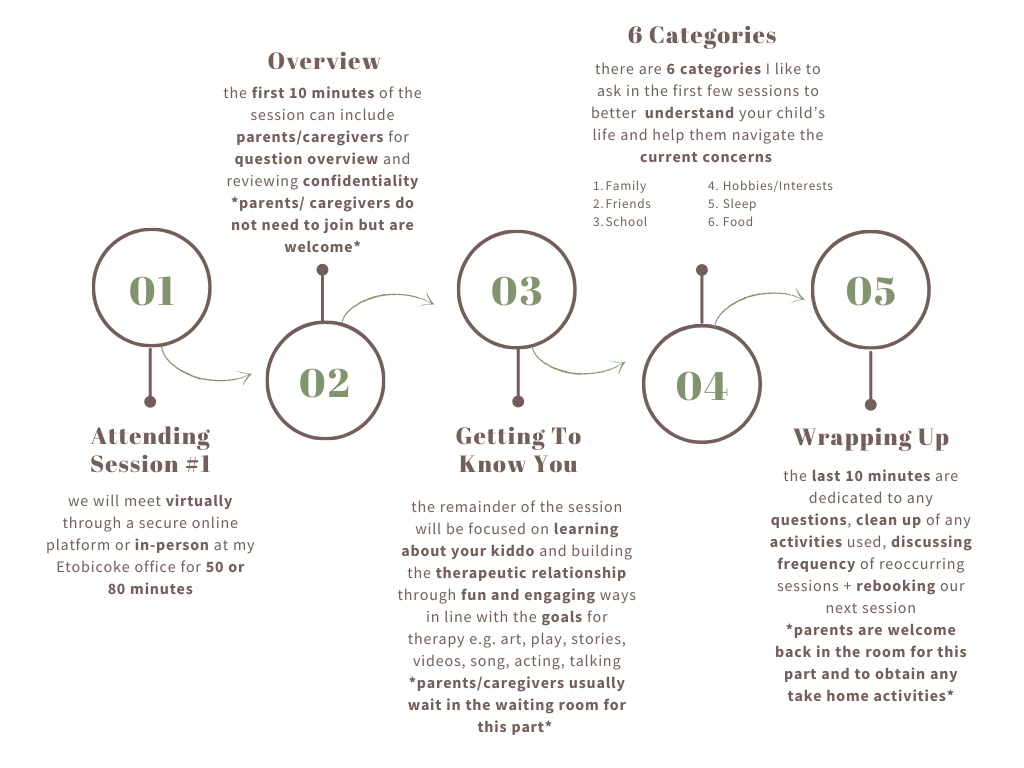
Kids Therapy: Helping Your Child Thrive Emotionally & Socially
What Is Kids Therapy and How Does It Work?
Kids therapy helps children navigate emotional, behavioural, and developmental challenges in a safe, supportive space. It encourages self-expression, builds coping skills, and fosters resilience.
- Understanding Your Child – The therapist gathers insights through fun activities with your child and discussions with caregivers/parents. Play-based observations, questionnaires, and scaling tools help tailor the approach
- Engaging Therapeutic Techniques – Therapy is customized based on age and needs. It may include:
- Play & Art Therapy – Toys, games, and creative activities help children express emotions in non-verbal ways
- Mindfulness & Relaxation – Techniques to manage stress, regulate emotions, and build self-awareness
- Parental Support – Involvement through coaching or family sessions to reinforce progress at home
Personalized Growth & Progress – Therapy is goal-oriented, with regular check-ins to track improvement and adjust strategies as needed.
How Do I Know If My Child Needs Therapy?
Every child has ups and downs, but therapy may help if you notice:
- Emotional Signs – Persistent sadness, anxiety, or mood swings; difficulty coping with stress or change
- Behavioural Signs – Increased aggression, withdrawal, trouble focusing, or changes in sleep/eating patterns
- Social & Developmental Signs – Struggles with friendships, low self-esteem, or difficulty expressing emotions
If your child’s challenges affect daily life, relationships, or confidence, therapy can offer support. Early intervention can make a big difference.
What Are The Benefits Of Therapy For Children?
Therapy provides a safe space for kids to understand their emotions, develop coping skills, and grow in confidence.
- Emotional Well-Being – Helps process difficult feelings, encourages self-expression, and builds resilience
- Behavioural & Social Growth – Strengthens communication, supports friendships, and reduces defiant or withdrawn behaviours
Academic & Daily Life Improvements – Enhances focus, teaches stress management, and promotes independence.
What Happens In A Child Therapy Session?
- A Supportive Start – The first 10 minutes of the session can include parents or caregivers to review confidentiality and answer any initial questions. While parents are welcome to join, it’s not required—whatever makes you and your child most comfortable
- Engaging & Understanding Your Child – The session focuses on getting to know your child in a fun and engaging way. Through activities like art, play, stories, and conversation, we build a therapeutic relationship while exploring key aspects of their life, such as family, school, friendships, and hobbies. Parents typically wait in the waiting room during this part
- Closing & Next Steps – The final part of the session may include a brief check-in with parents, depending on what feels most appropriate for your child and the goals of the session. We’ll discuss any activities used, answer your questions, talk about session frequency, and provide any take-home activities to continue the progress at home
This process ensures a gentle, supportive approach that makes your child feel safe, heard, and empowered.

How Long Does Kids Therapy Usually Take?
Therapy length depends on your child’s needs, goals, and progress. Some kids benefit from short-term support (6–12 sessions), while others need longer-term guidance.
Factors that influence duration:
- Nature of the Concern – Short-term challenges resolve faster; deeper issues take time
- Child’s Readiness & Engagement – Some children open up quickly, while others need more time to feel comfortable
- Parental Involvement – Applying strategies at home can speed up progress
We’ll guide you through the process, ensuring therapy ends when your child is ready.
What Is The Best Age To Start Therapy For A Child?
There’s no perfect age—children benefit from therapy based on their needs, not just their age.
- Early Childhood (Ages 3–6) – Play and art therapy help express emotions when words are limited. Useful for anxiety, separation challenges, or big life changes
- School-Age (Ages 7–12) – Builds emotional regulation, confidence, and coping skills for challenges like anxiety, ADHD, and social struggles
If you’re wondering whether therapy is right for your child, we’re here to help.
Therapy Tailored for Your Child
Every child is unique, and therapy is tailored to meet their individual needs. If you’re wondering whether therapy is right for your child, let’s start that conversation.
Finding the Right Therapy for your child
Learn about CBT, play and art therapy, and more - discover what's best for your child
Find Support for the Challenges Your Child Faces
From anxiety to ADHD - see how therapy can address emotional and behavioural growth
Copyright © 2024 rppsychotherapy.com All rights reserved



